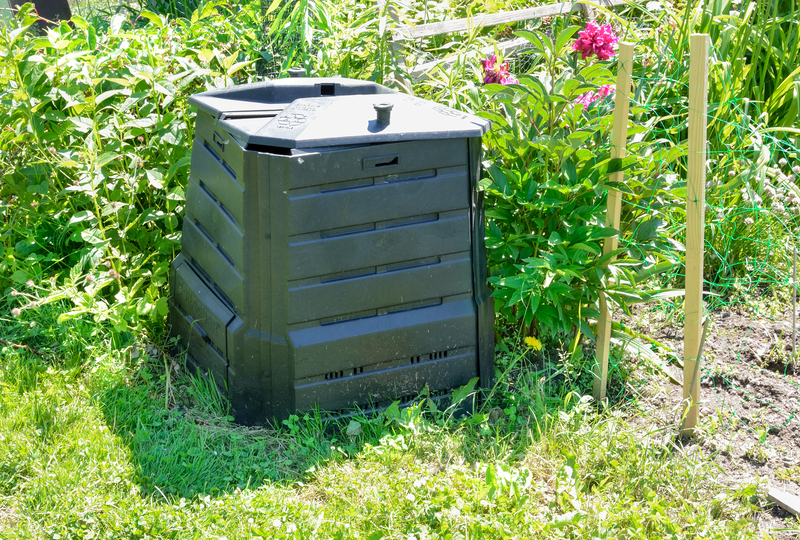Innovative Ways Cities Are Tackling PPE Waste Responsibly
As the world continues to grapple with the effects of the COVID-19 pandemic, cities worldwide are encountering a new environmental challenge: PPE waste. Personal protective equipment (PPE), including masks, gloves, gowns, and face shields, has become vital for public health, yet its improper disposal poses significant threats to urban environments. This article explores the most innovative methods and creative strategies cities across the globe are implementing to manage PPE waste responsibly, while protecting communities and the planet.

PPE Waste: A Growing Urban Crisis
The surge in the use of personal protective equipment has inevitably led to a parallel increase in plastic waste. Many of these items are single-use and composed of non-biodegradable materials, resulting in clogged waterways, overwhelmed landfills, and harm to wildlife. Urban centers, where population density amplifies PPE use, are at the forefront of tackling this challenge. However, amidst the adversity, many cities have developed innovative solutions for PPE waste management that set global examples for responsibility and environmental stewardship.
Strategies and Innovative Approaches for Responsible PPE Waste Management
From state-of-the-art recycling technologies to creative public partnerships, cities are reimagining how to deal with discarded masks, gloves, and other PPE products. Let's examine some of the most effective and inventive methods being employed around the world.
1. Dedicated PPE Collection Bins and Smart Waste Points
- Specialized Collection Bins: Cities like London, Singapore, and Toronto have installed designated PPE recycling bins in public spaces, hospitals, and transportation hubs. These dedicated bins encourage citizens to dispose of masks and gloves responsibly, preventing landfill and littering.
- Smart Waste Bins: Incorporating IoT and AI technology, smart bins monitor fill levels and alert city services for timely collection. Some smart bins are equipped with ultraviolet or ozone disinfecting capabilities to reduce biohazard risks.
2. Advanced Recycling Technologies
Traditional recycling systems often cannot process contaminated or multi-layered PPE. Innovative techniques are overcoming these barriers:
- Pyrolysis and Chemical Recycling: Cities such as Amsterdam have partnered with tech firms to convert PPE waste into fuels or raw materials through controlled thermal decomposition, minimizing pollution and recovering value from waste.
- Mechanical Recycling: Specialized facilities clean and shred PPE, transforming it into pellets for use in manufacturing construction materials, such as asphalt, bricks, or railway sleepers.
3. Upcycling PPE Waste into Useful Products
Upcycling brings creativity to PPE waste management. For example:
- Masks to Roads Initiatives: In Melbourne, Australia, a startup has developed an innovative solution by pulverizing single-use face masks and blending them into road-building materials, increasing durability and reducing environmental impact.
- Art and Community Projects: Several European cities encourage residents to collect cleaned masks and gloves, which are then used for public art installations, raising awareness and transforming waste into educational tools.
- PPE-to-Fabric Innovations: Companies are researching how to reclaim the plastic from used PPE for use in new clothing or textiles, closing the loop on synthetic waste.
4. Public-Private Partnerships and Incentives
Recognizing the value of collaboration, many cities have launched public-private partnerships to boost responsible PPE waste collection and recycling:
- Corporate Sponsorships: Local governments collaborate with companies to fund recycling infrastructure, sponsor awareness campaigns, and incentivize recycling behavior through discounts or loyalty programs.
- Healthcare and Retail Collection Points: Pharmacies, supermarkets, and clinics are participating as collection points, making it convenient for citizens to deposit PPE waste responsibly.
5. Education and Community Engagement
It's not just about infrastructure--the most successful cities double down on public education:
- Awareness Campaigns: From social media blitzes to school programs, cities deploy multi-language campaigns to inform citizens about the environmental impact of PPE waste and proper disposal methods.
- Volunteer Clean-Up Events: Community groups organize PPE-specific litter patrols, collecting improperly discarded masks and gloves from streets, parks, and beaches while educating the public.
Leading Cities in PPE Waste Innovation
Let's take a closer look at a few cities exemplifying innovative PPE waste solutions:
London, UK
London rolled out hundreds of designated mask recycling bins in partnership with PPE recycling company TerraCycle. This initiative ensures collected materials are disinfected and repurposed into items like benches and flooring tiles. In parallel, educational signage accompanies each bin, teaching proper mask disposal practices.
Sydney, Australia
Sydney's municipal government sponsors drop-off points for healthcare PPE and is investing in pyrolysis plants capable of converting polypropylene masks into construction aggregate. These measures not only reduce landfill waste but also support sustainable building projects.
Singapore
Singapore's "Save the Earth, Dispose Responsibly" campaign combines smart technology bins with incentives, offering public transport credits when PPE is disposed of correctly. Ongoing research by local universities explores new bio-based alternatives to traditional synthetic PPE, aiming for long-term waste reduction.
Toronto, Canada
Toronto's transit system was among the first to introduce UV-sanitizing PPE bins, which disinfect and compact discarded items automatically. Partnered with recycling companies, the city diverts tons of PPE from landfills to industrial recycling plants each month.
Emerging Trends in Sustainable PPE Waste Management
The future of urban PPE waste management is evolving rapidly. Here are some trends and emerging best practices that could shape the next decade of responsible PPE disposal in cities:
- Biodegradable and Compostable PPE: Researchers and manufacturers are developing biodegradable masks and gloves made from natural fibers or plant-based polymers, drastically reducing the long-term environmental footprint.
- Product Stewardship Laws: Some cities are enacting policies that require manufacturers to account for the "end of life" of the PPE they sell, incentivizing eco-friendly design and easier recycling.
- Zero Waste Initiatives: Urban centers such as San Francisco are integrating PPE waste management into broader zero waste strategies, aiming to divert all disposable PPE from landfills by 2030.
- Behavioral Science Techniques: Applying nudge theory, cities design PPE bins and signage to make responsible disposal the default, easy, and rewarding choice for residents.
Challenges Faced in PPE Waste Recycling and Management
Despite the remarkable progress, urban leaders acknowledge ongoing challenges:
- Contamination and Safety: Used PPE can harbor pathogens, complicating manual sorting and posing risks to waste workers. Automation, disinfection steps, and clear safety protocols are necessary.
- Material Complexity: Many masks, gloves, and PPE items are blends of multiple plastics, metals, or textiles, making separation and recycling technologically demanding.
- Public Perception: Residents may not realize the significant environmental harm caused by improper PPE disposal, highlighting the need for continuous education and outreach.
- Economic Feasibility: Innovations like chemical recycling and upcycling often carry high upfront costs, requiring government incentives and subsidies for widespread adoption.

How You Can Help With Responsible PPE Waste Disposal
Everyone has a role to play in tackling PPE waste responsibly. Here are practical steps individuals, businesses, and communities can take:
- Use Reusable PPE Where Possible: Opt for washable cloth masks or reusable face shields in appropriate settings to cut down on single-use waste.
- Learn Local PPE Recycling Rules: Check your city's website for designated PPE recycling locations and comply with guidelines.
- Encourage Workplaces and Schools to Install PPE Bins: Advocate for proper disposal points in high-traffic areas, especially in offices and educational institutions.
- Educate Others: Share information about the environmental impact of PPE waste and the importance of responsible disposal.
- Support Businesses Using Sustainable PPE: Choose retailers and healthcare providers who invest in biodegradable or recyclable protective gear.
The Road Ahead: Building Resilient and Sustainable PPE Waste Systems
The pandemic has underscored the importance of agility and forward-thinking in urban waste management. As cities continue to innovate and invest in responsible PPE waste solutions, the progress made will set the pace for broader environmental reforms and circular economy strategies. By embracing new technologies, fostering collaboration, and raising public awareness, urban communities can safeguard our health without sacrificing our planet.
In summary, successfully tackling PPE waste in cities demands a multidisciplinary approach--one that leverages technology, policy, creativity, and community spirit. As more cities adopt these innovative practices and sustainable policies, they are not only addressing a current crisis but also paving the way for resilient, greener, and healthier urban futures. Let us all be part of the solution by supporting, advocating for, and practicing responsible PPE disposal and recycling in our daily lives.